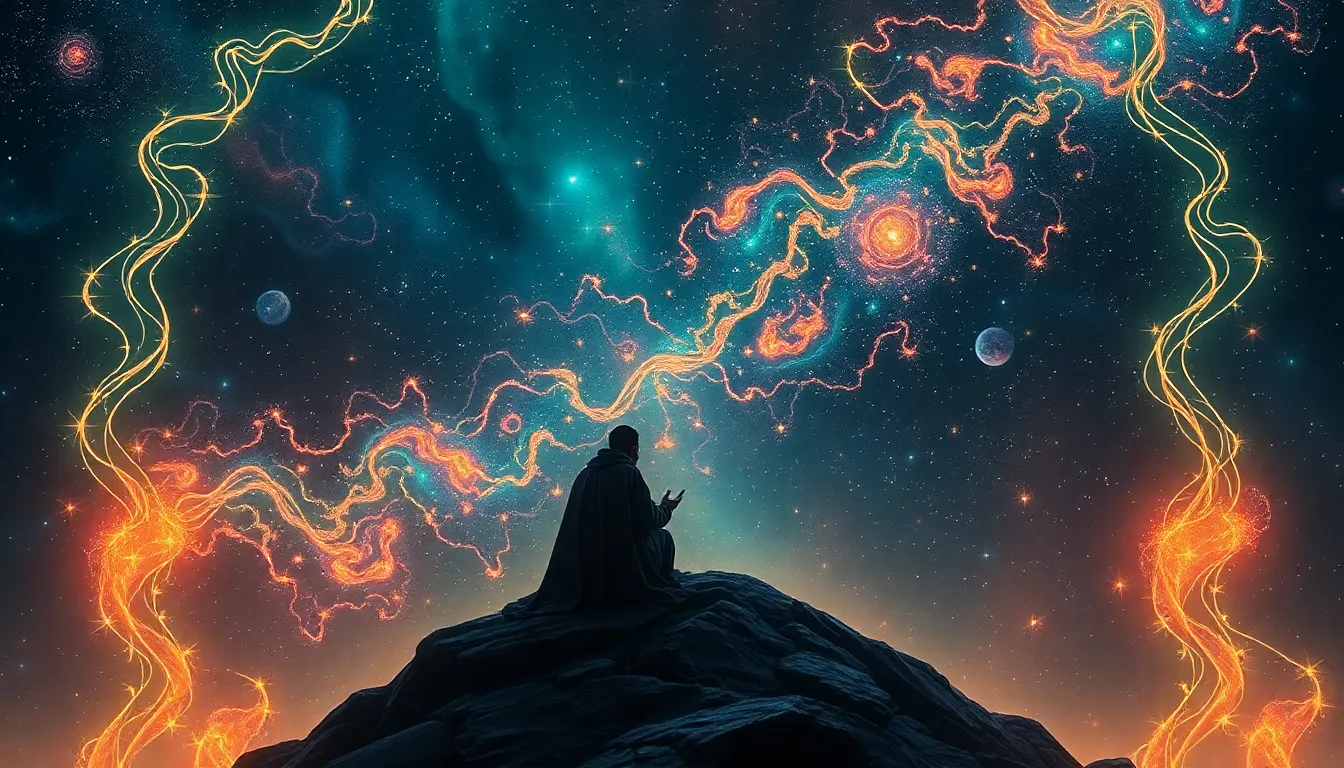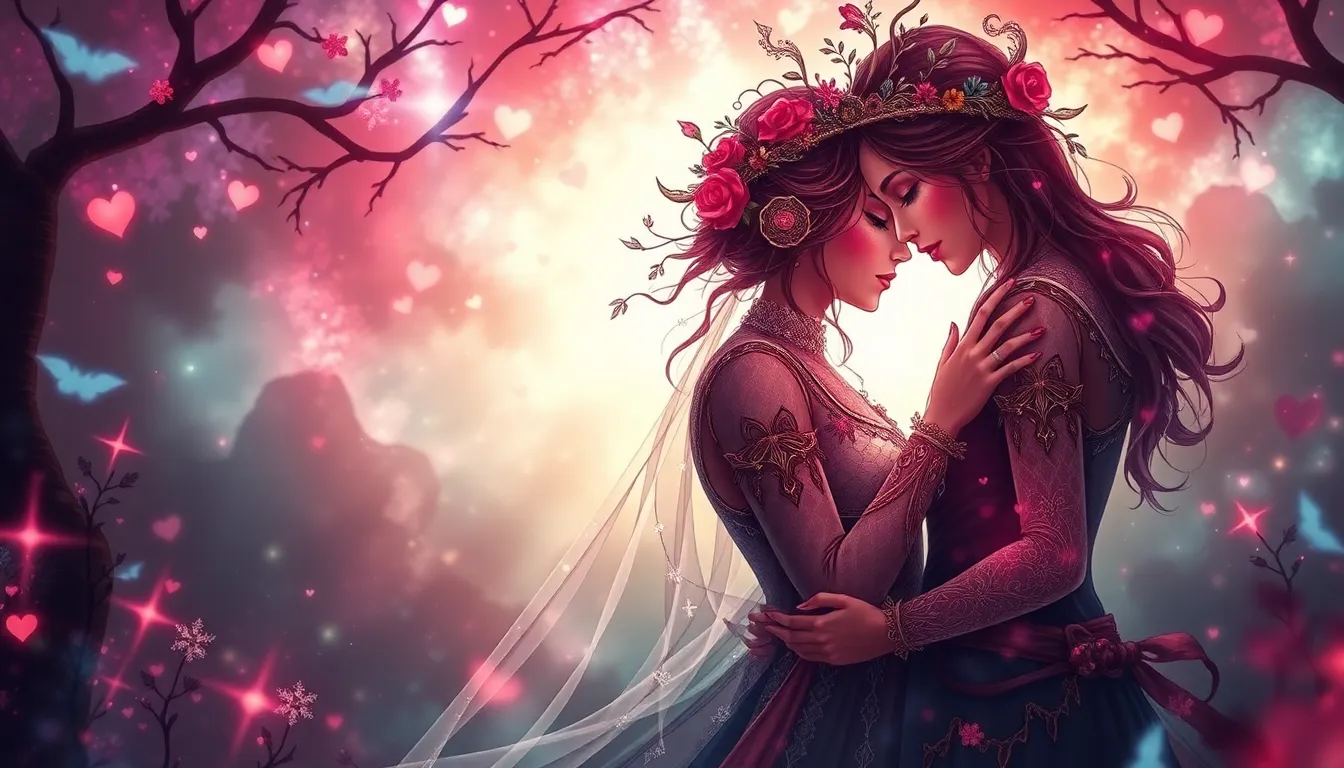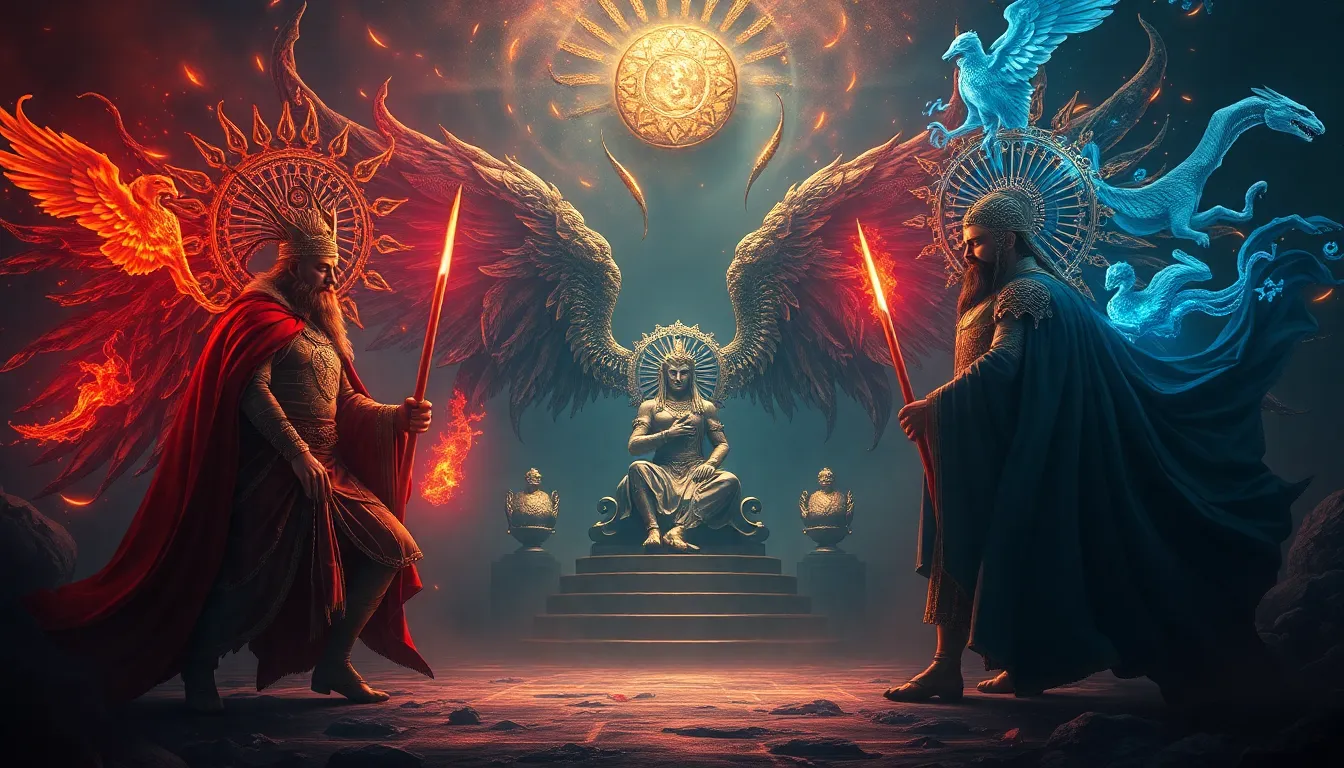The Journey of the Cosmic Storyteller: Myths of Narration and Legacy
I. Introduction: The Essence of Storytelling in Human Culture
Storytelling is a fundamental aspect of human culture, transcending geographical and temporal boundaries. It is the art of conveying experiences, values, and knowledge through narratives, often laden with emotions and lessons. Throughout history, storytelling has served as a medium for connection, allowing individuals and communities to share their histories and dreams.
Myths, as a form of storytelling, have played a crucial role in shaping cultures. They serve not only as entertainment but also as devices to explain the unexplainable, to convey morals, and to solidify cultural identities. By exploring the concept of the cosmic storyteller, we delve into how these narratives reflect the shared human experience, offering insight into our existence and the universe.
II. The Origins of Storytelling: From Oral Traditions to Written Word
The roots of storytelling can be traced back to ancient civilizations, where oral traditions reigned supreme. In societies without written language, stories were passed down through generations, often through rituals and communal gatherings. These narratives were vital for preserving collective memory and cultural identity.
As civilizations evolved, so did the means of storytelling. The transition from oral narratives to written texts marked a significant milestone in human history. The invention of writing systems allowed for stories to be documented, leading to a broader dissemination of myths and legends. This transition enabled different cultures to preserve their unique identities while also sharing their narratives with others.
Myths served as the backbone of cultural identity in these societies. They provided frameworks through which individuals understood their place in the world, reinforced social norms, and fostered a sense of belonging.
III. The Cosmic Storyteller: Archetypes and Symbols in Mythology
The archetype of the cosmic storyteller emerges as a powerful symbol within various mythologies. This figure often embodies the essence of creativity, wisdom, and the interconnectedness of all life. Cosmic storytellers are traditionally seen as creators or facilitators of existence, weaving the threads of fate and reality.
Key figures that embody this archetype include:
- Prometheus: The Titan who defied the gods to bring fire to humanity, symbolizing knowledge and enlightenment.
- Odin: In Norse mythology, Odin is the god of wisdom, who sacrificed himself to gain knowledge, representing the quest for understanding.
- Thoth: The Egyptian god of writing and knowledge, who played a critical role in recording the universe’s history.
The symbolism of the cosmic storyteller varies across cultures, yet the underlying themes of creation, knowledge, and transformation remain consistent. These figures often serve as intermediaries between the divine and humanity, illustrating the importance of storytelling in bridging gaps between worlds.
IV. Myths of Creation: Narratives That Shape the Universe
Creation myths are among the most profound narratives found in human cultures. They serve to explain the origins of the universe, humanity, and the natural world. Across various cultures, these myths share thematic elements, such as chaos leading to order, the emergence of life from the void, and the influence of deities.
Some notable creation myths include:
- The Genesis Creation Story: The biblical account of God creating the world in six days, culminating in the creation of humanity.
- The Babylonian Enuma Elish: A myth that describes the battle between the gods and the subsequent creation of the world from the body of the defeated goddess Tiamat.
- The Hindu Brahmanda: This myth illustrates the cyclical nature of creation and destruction, where the universe is created, preserved, and ultimately destroyed in a perpetual cycle.
These narratives profoundly impact cultural worldviews, influencing beliefs about existence, morality, and the relationship between humanity and the cosmos. They offer insights into how societies understand their origins and place in the universe.
V. The Role of Storytellers in Society: Guardians of Knowledge and Tradition
Storytellers have historically played a crucial role in communal life. They are the custodians of knowledge, preserving traditions, and imparting wisdom. Through their narratives, storytellers shape social norms and values, acting as mirrors to the society they represent.
The importance of the storyteller can be observed in various aspects:
- Cultural Transmission: Storytellers pass down traditions, rituals, and moral lessons, ensuring that cultural legacies endure.
- Social Cohesion: By sharing stories that resonate with communal experiences, storytellers foster a sense of belonging and unity.
- Reflection of Values: The narratives told often reflect societal values, guiding individuals in understanding their roles and responsibilities.
In modern societies, the role of the storyteller has evolved. With the rise of technology and mass media, traditional storytelling has transformed significantly. However, the essence of storytelling remains, adapting to new forms of expression and communication.
VI. Legacy and Transmission: The Evolution of Myths Through Generations
Myths are not static; they evolve and adapt over time. As societies change, so too do the stories they tell. This adaptability is crucial for the continued relevance of myths, allowing them to resonate with new generations.
Factors influencing the evolution of myths include:
- Cultural Interactions: As cultures come into contact, stories are exchanged and transformed, creating hybrids that reflect diverse influences.
- Technological Advancements: New mediums, such as film and digital storytelling, have revolutionized how myths are shared, reaching wider audiences.
- Folklore: Local tales and folklore often emerge from a blend of myth and reality, maintaining cultural legacies while adapting to contemporary contexts.
Folklore plays a particularly significant role in preserving cultural identities, often reflecting the values and struggles of the communities from which they originate.
VII. The Intersection of Science and Myth: Cosmic Narratives in Modern Context
In the contemporary era, the relationship between scientific discovery and myth-making remains significant. As science unveils the mysteries of the universe, new narratives emerge, often reflecting ancient myths.
Examples of this intersection include:
- The Big Bang Theory: This scientific explanation of the universe’s origin parallels many creation myths that describe a beginning from chaos or nothingness.
- Evolutionary Theory: The narrative of evolution can be seen as a modern myth that reinterprets human origins in the context of natural processes.
- Astrobiology: The search for extraterrestrial life evokes questions similar to those posed in ancient myths about other worlds and beings.
The philosophical implications of storytelling in science suggest that narratives are essential for making sense of complex ideas and fostering a deeper understanding of our place in the universe.
VIII. The Cosmic Storyteller in Literature and Art
The influence of the cosmic storyteller theme extends into literature and art. Many literary works draw inspiration from mythological archetypes, exploring the complexities of existence and creativity.
Notable literary works include:
- “The Alchemist” by Paulo Coelho: This novel reflects the journey of self-discovery and the pursuit of one’s personal legend, embodying the essence of the cosmic storyteller.
- “The Hitchhiker’s Guide to the Galaxy” by Douglas Adams: A humorous take on cosmic narratives, exploring the absurdity and wonder of the universe.
Visual art also captures the essence of storytelling, often depicting mythological scenes and figures that evoke emotions and provoke thought. Contemporary media, including film and graphic novels, continue to explore and reinterpret these themes, ensuring their relevance in modern storytelling.
IX. The Future of Storytelling: New Myths for a Changing World
As we move forward, new themes emerge in modern storytelling that reflect the challenges and aspirations of contemporary society. These include:
- Environmental Narratives: Stories addressing climate change and environmental stewardship, emphasizing humanity’s relationship with the Earth.
- Technological Myths: Narratives exploring the implications of artificial intelligence and virtual realities, reshaping our understanding of existence.
- Social Justice Stories: Myths that confront issues of inequality and advocate for marginalized voices, promoting a more inclusive narrative landscape.
The role of digital technology in storytelling cannot be overstated. As new platforms emerge, they offer innovative ways to share and experience narratives, allowing for a richer and more diverse storytelling environment. The cosmic storyteller will continue to evolve, reflecting the ever-changing tapestry of human experience as we navigate the complexities of




